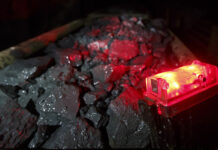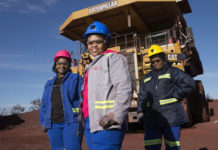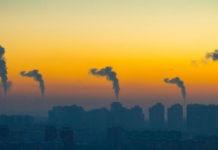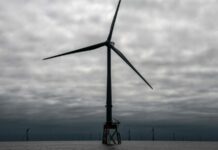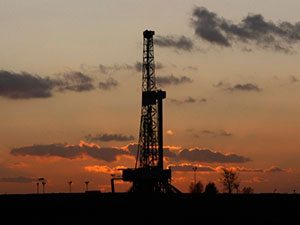
[miningmx.com] – THE undertaking by the South African government to start processing exploration applications by Karoo gas hopefuls may raise the hackles of environmentalists, but the net outcome can only be positive.
The fact of the matter is that for all the noise around Karoo gas, and the negative effects lobby groups see in its exploitation through fracking, very little is known about the feasibility of the resources.
“In the shale gas area, people are rightfully optimistic,’ said Jan-Willem Eggink, GM of Shell South Africa’s upstream business. “But we also don’t know.
“What we’re doing now is getting a licence to drill, but we are not drilling for gas, we are drilling for data,’ he added.
“Even if gas is available, there’s a slew of regulatory complication to work through, starting with government’s attitude,” he said.
The South African government is clearly in favour of exploiting non-conventional gas resources in the Karoo, but it’s enthusiasm needs to be tempered, and not just for the sake of lobbyists who fear their concerns about the damage to the Karoo water table may be rail-roaded in favour of political ends.
There’s also the issue of how to develop infrastructure to support its distribution. “Gas could pay a vital role in South Africa’s energy mix going forward,’ said Prish Govender, programme director for Group Capital at Eskom.
“The question is how to beneficiate unconventional gas and its greater economic benefits to the economy,’ he said. “And how do we develop a regulatory environment to allow this to happen?’
The regulations governing Karoo gas resources currently reside in amendments to the Minerals & Petroleum Resources Development Act.
The amendments passed through parliament before national elections in May this year, but they may well be recalled for further discussion.
Said Mike Rossouw, an energy consultant and former manager at Xstrata: “The unfortunate reality is that we are talking about gas, but don’t have an integrated energy plan”.
He is referring to the Integrated Resource Plan (IRP), the government’s blueprint for the country’s future energy mix. The IRP, first published in 2010, has been updated, but has not yet been delivered to cabinet.
What’s interesting about the IRP is that it has pulled back its original aspirations for significant, early delivery of nuclear power, and has suggested instead the development of another coal-fired power station, and included the game-changing impact gas could make to South Africa’s energy mix.
“I firmly believe if you make energy accessible in sufficient capacity then a good price and the economy will come,” said Rossouw. “But we don’t have sufficiently advanced energy plan,” he said.
As for the environmentalists, they will be heartened by recently promulgated legislation that allows them to lodge objections to the granting of exploration permits such that a study is automatically triggered.
It’s perhaps for this reason that the South African government has asked exploration permit applicants to revisit with urgency their environmental management plans (EMPs) with a view to having them completed by February. Environmental objections will be vigorous and emotional.
Eggink has attempted to cool the fears, however. “We have a position in the Karoo, but we are only chasing down about 1% of that. We are not rushing into the region in a cavalier fashion,” he said.






